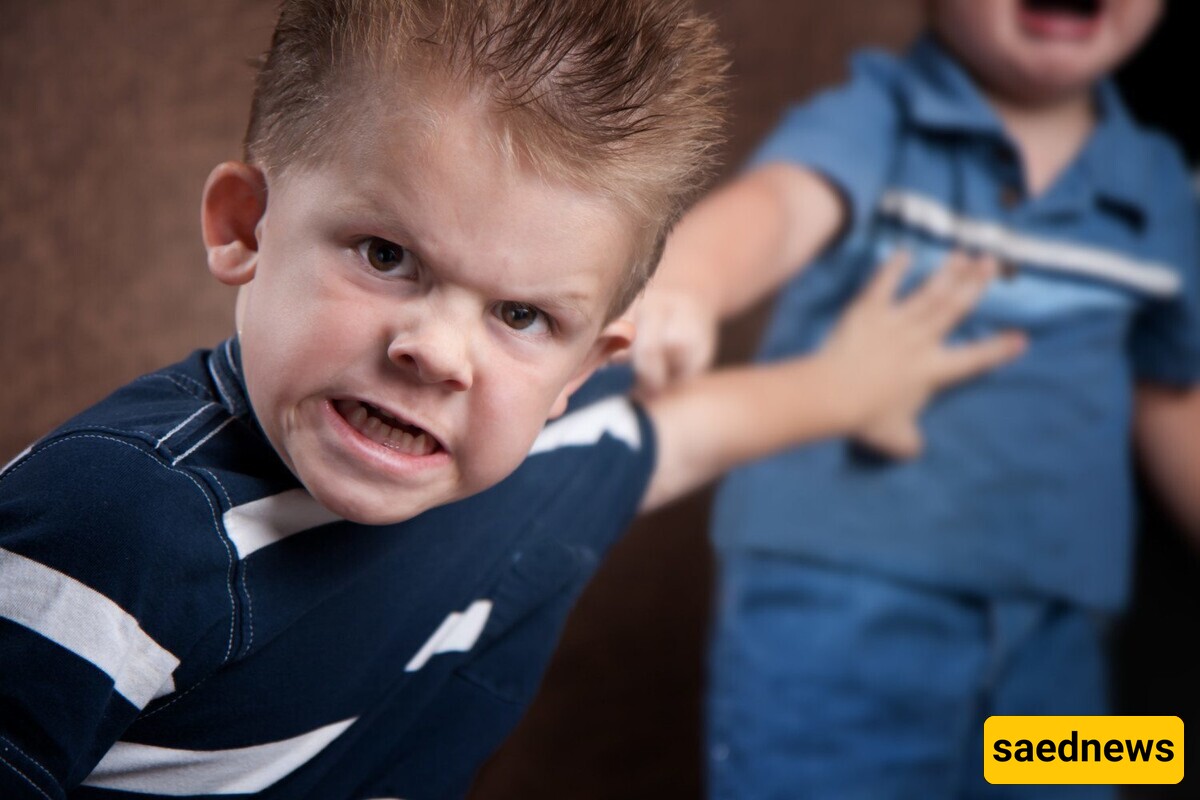Saed News: Why do preschool and kindergarten children use foul language and inappropriate words? How can we teach children not to use offensive and unpleasant words? In this article, you will learn about the reasons why a five-year-old child swears and the strategies to deal with it.

Why Do Preschoolers Use Bad Words?
Sometimes, your child might shout an unpleasant or inappropriate word out of frustration or anger, simply because, like many of us, they lack the right words to express their disappointment. Or maybe their best friend has recently expanded their vocabulary and thought it would be fun to share a few choice words—words your child is now eagerly repeating at home. Since they recently learned how to use the toilet, words related to bathroom activities can still amuse them, so they repeat them and laugh.
In almost all cases, what you’re witnessing is a curious preschooler conducting an experiment:
"I heard this word, and people seem to say it with intensity or disgust. Let’s see what happens when I say it!"
However, regardless of where these words come from, it’s never too early to teach children that using them is unacceptable.
How to Stop a Five-Year-Old from Swearing and Using Offensive Words?
But how can we teach children not to use foul and inappropriate language? The following guidelines will help you stop your child from swearing:
1. Stay Expressionless and Calm
When your child swears or mentions bodily functions, resist the urge to laugh; otherwise, they may interpret your laughter as encouragement to repeat it. To a young child, making adults laugh—or making them angry or upset—feels extremely powerful. Even if your child’s newly invented phrases sound funny, showing that you find them amusing is not in your best interest.
2. Offer Alternatives
If your child is simply experimenting with a new word to see how it sounds, you can encourage them to use a fun alternative like "Abracadabra" or "Yoo-ha-ha-ha". You can also replace the inappropriate word with a silly, similar-sounding word.
If the issue is that your child lacks acceptable words to express anger or frustration, encourage them to say phrases like:
"I’m angry!" or "I’m frustrated!"
Some parents even invent funny, family-specific phrases to use instead of inappropriate words. If nothing else, suggesting milder alternatives can help.
3. Set Clear Limits
If your preschooler has picked up serious swear words, it’s important to set clear rules. Do this calmly—without getting upset or angry. Otherwise, you may unintentionally teach them that swearing is a quick way to grab your attention.
If the offensive word is made-up, tell them you don’t understand what they’re saying. For swear words they’ve heard from adults or other children, don’t explain their meaning or why they’re offensive. Simply and unemotionally state which words are not allowed:
"That’s not a word you can use at home or in public."
4. Teach Bathroom Talk Naturally and Casually
If you make disgusted faces when helping your child clean up after using the toilet, or whisper bathroom-related words, don’t be surprised if they quickly learn that bodily functions and their related words get attention.
Remind yourself that it’s completely natural for children at this age to be fascinated by their bodies—especially the parts that are usually covered—and everything that comes out of them. The less emphasis you place on their obsession with bathroom words, the sooner they will outgrow it. Reading fun picture books about body functions can also help reduce the "forbidden" appeal of these topics.
5. Implement Consequences and Penalties
If your child continues using inappropriate words after one or two warnings, it’s time to apply discipline. Stay calm, respond quickly, and be consistent. Say something like:
"That word means you get a time-out."
Time-outs can be given anywhere, such as in the back seat of the car or a quiet corner of a shopping mall. If time-outs alone don’t work, you might need to escalate consequences, such as taking away privileges—but do so consistently and without emotion. For example:
"If you use that word, you won’t be able to go to Yarin’s house to play."
or
"If you keep saying that, you won’t watch your favorite cartoon this afternoon."
At this stage, it’s also helpful to consider why your child is so determined to challenge you. Swearing might be a sign that something else is bothering them.
6. Don’t Reward Swearing
If your five-year-old uses swearing to get something they want, make sure they don’t succeed. Saying,
"That wasn’t a nice word, but here’s your ice cream anyway,"
is completely ineffective.
7. Teach Respect
Allowing your child to think it’s okay to call other children names—even mild, playful insults—does them no favors. Ask them, "How would you feel if someone called you that?"
Swearing and excessive bathroom talk are not acceptable in school, on the playground, or at friends' houses. Explain that these words hurt people’s feelings, and it doesn’t matter if other kids say them—name-calling and swearing are not allowed.
Your child is still learning empathy and may not yet understand the need to consider others’ feelings, but they should still be reminded that their words affect people.
8. Watch Your Own Language
Of course, there are different rules for adult and child behavior, but if your five-year-old hears you swearing casually in daily conversations, it will be much harder to convince them to stop.
If they repeat something you’ve said, admit that you also shouldn’t have said it. Agree to remove the word from both of your vocabularies—and then follow through on that decision.


